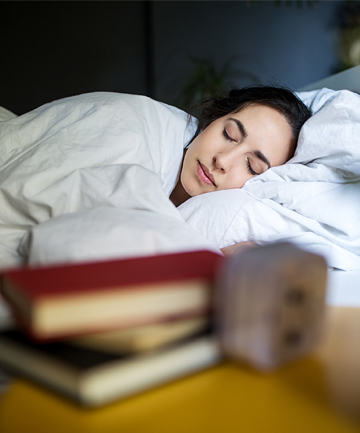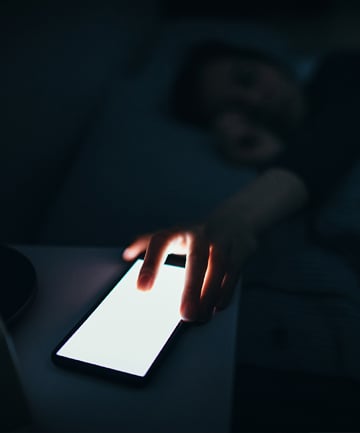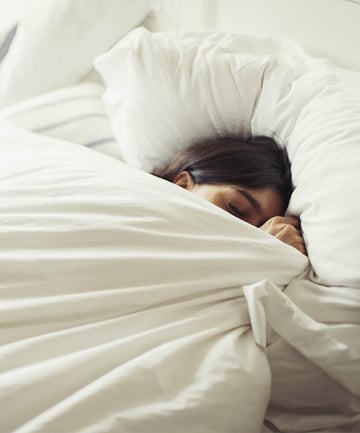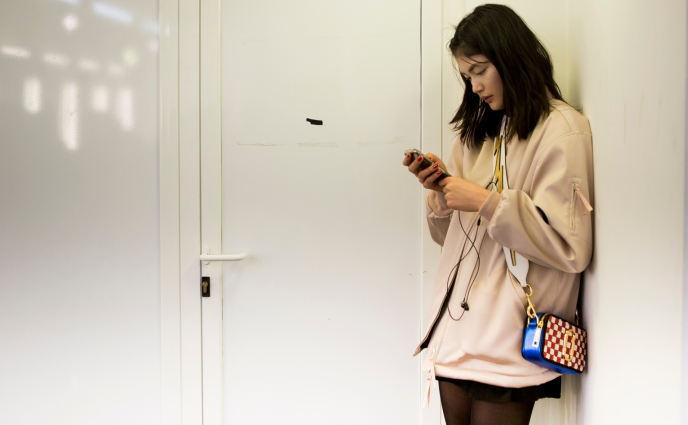Making sure you get a decent amount of shut-eye these days can be a real challenge these days, as daily stresses, long hours at the office, and the temptation of scrolling endlessly through Instagram can definitely keep you awake far longer than you probably should be.
And while you may feel doomed to stare sleeplessly at the blinking digital clock on your nightstand for the rest of your days, certified clinical sleep educator Terry Cralle, RN, says it's actually pretty easy to improve your sleep hygiene — if you incorporate the right steps into your routine, of course.
So, to help you rev up your sleep game (and kiss those sleepless nights goodbye), we spoke more to Cralle about all the little things you can do to improve your sleeping habits. From setting an alarm for bedtime to powering off your electronics before you turn off the lights, below are 11 helpful suggestions worth keeping in mind before you go to bed tonight.
Image via Luis Alvarez/DigitalVision/Getty
You probably set an alarm in the morning — so why not set one at night, too? After all, it's all-too easy to get distracted and push your bedtime back further and further. "One of the first things to do to help combat this is to have a bedtime alarm," Cralle says. Set it to go off at least 30 minutes prior to the time you should be in bed, she suggests, so that you can wind down and relax prior to turning in.
Image via NurPhoto/NurPhoto/Getty
"A bedtime routine is crucial to train your body and mind to disengage and go into sleep mode," explains Cralle. She suggests implementing a 30-45 minute nighttime routine that's relaxing, consistent and reproducible — and it should take you closer and closer to your bedroom. Include something pleasant like reading, coloring, knitting, or journaling — and for maximum efficacy, she says that it's extra important to do your activities in the same order, every night.
Image via Hispanolistic/E+/Getty
For a better night's sleep, Cralle suggests putting your electronic devices to bed at least an hour before you put yourself to bed. "Checking emails and social media is a morning thing; not a bedtime thing," Cralle notes. But if you have something imperative that you must check, she recommends slipping on a pair of amber glasses that block the blue light or using a blue light-blocking app or filter on your device. You see, the blue light can wake you up — and blue light-blocking glasses and filters will help negate those effects, keeping you relaxed.
Image via d3sign/Moment/Getty
Although it's normal to wake up during the night, Cralle stresses the importance of making sure your bedroom is cool, dark and quiet, as it will help you go right back to sleep faster. And if you need to use the bathroom during the night, she recommends using the dimmest light (preferably red or amber in color) possible to safely navigate your way there and back. As she explains, bright lighting is alerting and it can make it difficult to fall back asleep.
Image via Caiaimage/Paul Bradbury/Caiaimage/Getty








